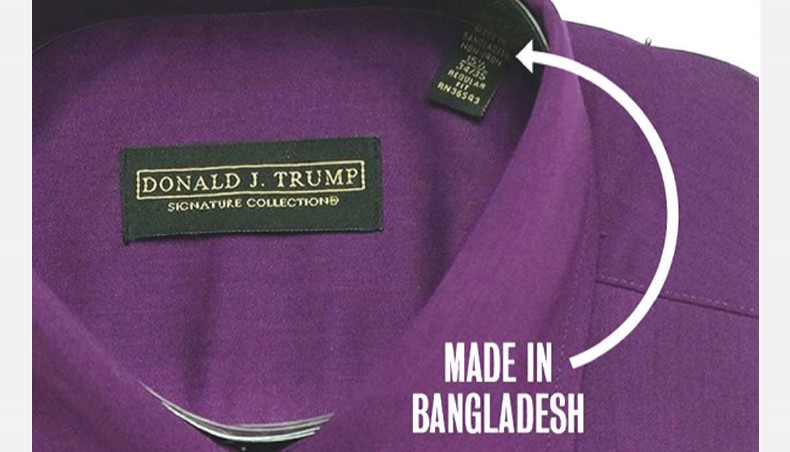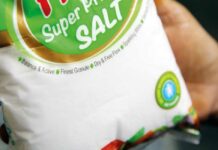Economists and exporters on Wednesday expressed mixed reaction over the surprise result of the United States presidential polls that elected Republican candidate Donald Trump as the 45th president of the country, defeating democrat candidate Hillary Clinton. Reacting to Trump’s victory, they said that the existing status of trade, especially in exports, would remain unchanged but it would not bring any new trade facility for Bangladesh in the US market under the new president. US is the largest export market for Bangladesh exporting products including garments and leather goods worth over US$ 6 billion a year. Centre for Policy Dialogue executive director Mustafizur Rahman said that though Bangladesh might not face any additional problems for existing export, there might be some adverse impact on inflows of foreign direct investment and exploring export potentials of prospective sectors like outsourcing. The possibility of restoration of the suspended GSP facility for Bangladeshi goods in US market also sees no new hope, he said. ‘I don’t see any new problems on bilateral trade relations, particularly in export of Bangladesh goods to US market,’ he said. Over 93 per cent of Bangladesh’s export to the US market is readymade garment items, the manufacturing of which will not be competitive for US producers, he said. But some potential sectors like business process outsourcing may face some constraints as the new president seemed to discourage outsourcing, he added. Regarding possibility of restoration of GSP facility, Mustafiz said that traditionally the Republican Party follows more conservative policy than Democrats on these issues, he said. ‘So, I don’t see any new possibility on renewal of GSP status,’ he said. Trump will also encourage the investors for expansion of their investment inside USA instead of outside the country which may put some negative impact on FDI inflow to Bangladesh, he said. The number of immigrants from Bangladesh to the USA may also decline, he added. It will also bring some relief if the new president doesn’t ratify the proposed Trans-Pacific Partnership, Mustafiz said. Policy Research Institute executive director Ahsan H Mansur, however, did not see any direct impact on Bangladesh’s trade relations with the US after the change of presidency of the country. There may be some indirect impact on Bangladesh if Trump goes for trade war with countries like China, he said. ‘There will be a negative impact on Bangladesh as a non-GSP recipient country if he goes for trade war with China through imposition of trade barriers with higher trade tariff,’ Mansur said. Possible non-approval of TPP by Trump government may bring some relief for Bangladesh as Vietnam, Bangladesh’s main export competitor in US market, will not get additional benefit in the market, he said. ‘I also don’t see any hope of renewal of GSP status for Bangladesh as Republicans are more conservative than the current US regime,’ he said. Trump’s victory may be harmful for global trade and investment, he said, adding that any damage in global investment scenario due to Trump’s policy will affect Bangladesh. Nothing will happen if he forgets what he said as a politician before election, Mansur added. Abdus Salam Murshedy, president of the Exporters Association of Bangladesh, said that since the beginning of the readymade garment sector in Bangladesh in early 80s, both the Democrats and Republicans assume power in their country several times. But there never was any significant change in foreign policy of the US with the change of government there, he pointed out. ‘I think the existing business status would continue and a new scope may create to start discussions on resorting GSP facilities for Bangladesh as the new president of US is a businessman,’ he said. Faruq Hassan, senior vice president of Bangladesh Garment Manufacturers and Exporters Association, said that the victory of Trump would not bring any harm for Bangladesh, rather many positive things may happen for Bangladesh as Trump is also a businessman. ‘Democrat government suspended generalised system of preferences for Bangladesh and despite Bangladesh fulfilled all the requirements they did not restore the trade facility. The victory of Trump might create a new scope for Bangladesh to start negotiations over the issue,’ he said. Due to Trump’s victory, the possibility of proposed TPP would be narrowed as Trump had announced not to ratify the treaty if he can assume power, Faruq said. He said that the TPP was an initiative of the Democrat government to give privilege to Vietnam, one of the major competitor countries of Bangladesh, and if the treaty comes in effect Bangladesh would lose its competiveness in the US market in exporting readymade garments. Another readymade garment exporter, not to be named, told New Age that it is too early to make comment on the change of presidency of US. ‘I do not think the victory of Trump would bring any positive thing for the business of Bangladesh and we should be aware that the US would not take any decision hampering its own interest,’ he said.
Source: New Age










